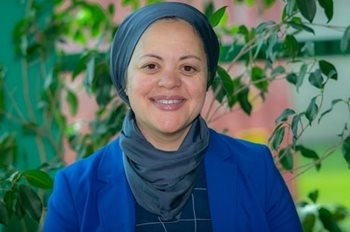Guy Choquet, the Red Cross Director of Operations, Alberta Fire Recovery in Fort McMurray was one of thousands of people evacuated when flood waters came into the downtown area on April 26, 2020.
“Recovery is case by case, and for me, I did not lose anything but was unable to return to my place for six months. For me, until I was able to return to my place, it felt like my life was on hold.”
Choquet was also instrumental in supporting the Flood Collaborative, a group of local community organizations that formed to identify and address any gaps in services as residents began the recovery process.
“Red Cross hosted information exchange sessions with agencies that were supporting impacted populations in Wood Buffalo. When the mental health needs of flood-impacted residents surfaced, we initiated the collaborative,” says Choquet.
 It can be challenging for individuals to reach out for mental health supports following a disaster, but for people new to Canada, it can be even more daunting.
It can be challenging for individuals to reach out for mental health supports following a disaster, but for people new to Canada, it can be even more daunting.The Multicultural Association of Wood Buffalo (MCA) is one of the Collaborative members. Rasha Hassan, pictured right, worked on interpretation and translation.
“We identified the barriers to access mental health supports: English-only communications, cultural taboos, and traditions regarding requesting aid, systemic discrimination, including lack of direct marketing and communication to the multicultural community. There was also a lack of awareness in the newcomer community of available services.”
MCA was established in 1985 and supports cultural groups in the Wood Buffalo region and fosters cross-cultural awareness and understanding. Post-flood, MCA worked to fill the identified gaps to ensure anyone who needed mental health support, could access it.
“In addition to translation of information, the MCA leveraged its role on various community committees to share information about the flood collaborative and the partner agencies work, as well as, using its communications tools to reach diverse community populations with this important messaging about the collaborative.”
The Collaborative strengthened coordination with community organizations which led to shared learning and service delivery related to mental health and psychosocial services for priority populations impacted by the 2020 floods.
Hassan added that, “There was a history of depression and the need for mental health counselling significantly increased the risk of developing PTSD symptoms following the 2020 flood.”
For MCA, the legacy of the Collaborative is far reaching. Hassan says they were able to assist a lot of newcomers with mental health supports post-flood and residents are now more aware of the available supports in the community and how to access them.
For more information on Psychological First Aid with the Canadian Red Cross.

